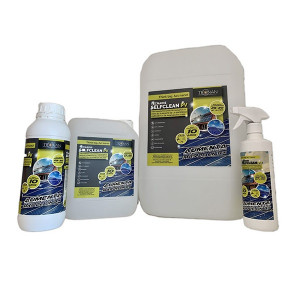| TECNAN Tecnología Navarra de Nanoproductos S.L. |

| Registration Date | 2 Nov 2021 |
| Revision Date | 2 Nov 2021 |
| Share |
Renewable Energies Solar Cells
Solar ShieldTitanium dioxide
TiO2 Nanoparticle /Nanopowder CAS Number : 13463-67-7It increases energy efficiency by more than 8%. – It increases transmittance by reducing the reflectance of visible radiation by 19%. – Its self-cleaning effect reduces the adhesion of particles of sand, soil, etc. and keeps glass surfaces clean for longer. – Totally transparent coating, which does not modify the aesthetic appearance of the glass, and even improves the transmittance of the visible light through it. Durability of 10 years under normal conditions of use. – Total resistance to UV radiation.
TECNADIS SELFCLEAN PV is a nanotechnology-based treatment to increase the energy efficiency of solar panels
TECNADIS SELFCLEAN PV is a surface treatment based on nanotechnology that increases the energy efficiency of solar panels. It also protects surfaces from dirt stains, reducing their accumulation mainly due to its additional anti-dust property (it reduces the adherence of particles of soil, sand, etc.). In addition, thanks to the action of the treatment that facilitates the formation of a thin layer of water (self-cleaning effect), glass stays cleaner for longer favouring greater efficiency in the use of incident light, and economic savings by reducing maintenance and cleaning costs. Surface treatment based on nanotechnology that increases the energy efficiency of solar panels. It also protects surfaces from dirt stains, reducing their accumulation mainly due to its additional anti-dust property (it reduces the adherence of particles of soil, sand, etc.). In addition, thanks to the action of the treatment that facilitates the formation of a thin layer of water (self-cleaning effect), glass stays cleaner for longer favouring greater efficiency in the use of incident light, and economic savings by reducing maintenance and cleaning costs.